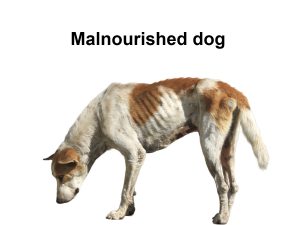Do you ever notice that your furry friend occasionally experiences digestive issues? Dog digestive problems can be worrisome for pet owners, as they can cause discomfort and potentially impact their overall health. Understanding the most common digestive issues in dogs is crucial in maintaining their well-being. In this article, Try My Pet will explore ten of the most prevalent dog digestive issues and provide helpful information on how to identify, manage, and prevent them. So sit tight and get ready to learn everything you need to know about your dog’s digestive health!
1. Diarrhea
Diarrhea is one of the most common digestive issues in dogs, and it can manifest in various forms, from loose stools to watery consistency. It can be caused by a range of factors, such as dietary changes, food intolerance, viral or bacterial infections, and even stress. To manage diarrhea, it is essential to provide your dog with plenty of fresh water and a bland diet consisting of boiled chicken and rice. If the condition persists for more than a day or if your dog displays other severe symptoms, it is crucial to consult with your veterinarian.
2. Vomiting
Vomiting is another frequently encountered dog digestive issue that can have multiple underlying causes, such as dietary indiscretion, ingesting toxic substances, gastrointestinal obstructions, or underlying medical conditions. In many cases, vomiting is temporary and resolves on its own. However, if your dog vomits persistently, displays other worrying symptoms, or if blood is present in the vomit, seeking veterinary advice is essential to ensure proper treatment.
3. Gas and Flatulence
Just like humans, dogs may also experience gas and flatulence from time to time. While occasional gas is considered normal, excessive flatulence could indicate an underlying issue. Dogs can develop gas due to dietary changes, eating too quickly, consuming foods that are difficult to digest, swallowing air while eating or drinking, or a bacterial imbalance in the intestines. It is advisable to feed your dog a high-quality, easily digestible diet, avoid feeding table scraps, and consider incorporating probiotics into their routine to promote a healthy gut flora.
4. Upset Stomach
An upset stomach is a broad term used to describe various digestive issues, such as indigestion, nausea, bloating, or abdominal pain. Common causes of upset stomach in dogs include dietary changes, food intolerance, dietary indiscretion, and infections. To alleviate an upset stomach, it is recommended to fast your dog for 12-24 hours, offer small, bland meals afterward, and closely monitor their behavior. If the symptoms persist or worsen, consulting with your veterinarian is essential.
5. Constipation
Constipation refers to infrequent or difficult bowel movements, and it can be a common digestive problem in dogs. Factors such as dehydration, lack of fiber in the diet, inadequate exercise, or ingestion of foreign objects can contribute to constipation. In mild cases, increasing water consumption and providing a fiber-rich diet can help alleviate constipation. However, if your dog experiences severe constipation, shows signs of pain, or if there is blood in the stools, it is crucial to seek veterinary assistance promptly.
6. Gastroenteritis
Gastroenteritis refers to the inflammation of the stomach and intestines and can result in symptoms such as vomiting, diarrhea, abdominal pain, and loss of appetite. This condition can be caused by viral or bacterial infections, ingestion of toxins or foreign objects, or dietary indiscretion. Mild cases of gastroenteritis can often be managed by fasting your dog and providing small, frequent meals of a bland diet. However, severe cases may require veterinary treatment to address dehydration and administer appropriate medication.
7. Pancreatitis
Pancreatitis is a condition characterized by inflammation of the pancreas, which can lead to digestive issues in dogs. The pancreas plays a vital role in producing enzymes necessary for digestion, and when it becomes inflamed, these enzymes can cause damage to the organ itself. Common causes of pancreatitis include high-fat diets, obesity, certain medications, or underlying medical conditions. Symptoms of pancreatitis can range from mild to severe, and immediate veterinary attention is crucial for accurate diagnosis and treatment.
8. Gastric Dilatation-Volvulus (GDV)
Gastric Dilatation-Volvulus, commonly known as bloat, is an alarming and life-threatening condition that primarily affects large and deep-chested breeds. It occurs when the stomach rapidly fills with air and expands, potentially twisting on itself. GDV requires immediate veterinary intervention, as it can lead to severe complications, including tissue death and organ failure. Common symptoms of GDV include unproductive retching, restlessness, distended abdomen, and pale gums. This condition is considered a medical emergency, and time plays a critical role in the dog’s prognosis.
9. Inflammatory Bowel Disease (IBD)
Inflammatory Bowel Disease is a chronic condition characterized by inflammation of the gastrointestinal tract. It can cause a range of symptoms, including chronic or intermittent diarrhea, vomiting, weight loss, and reduced appetite. The exact cause of IBD is unknown, but it is believed to involve an abnormal immune response to the gut’s bacterial flora or dietary sensitivities. Diagnosis and management of IBD often require a comprehensive approach, including dietary modifications, medication, and regular veterinary monitoring.
10. Intestinal Parasites
Intestinal parasites, such as roundworms, hookworms, whipworms, or giardia, can significantly impact a dog’s digestive system. These parasites often enter a dog’s body through contaminated food, water, or feces. Common symptoms of intestinal parasites include diarrhea, weight loss, vomiting, and a dull coat. Regular deworming and practicing good hygiene, such as picking up after your dog and avoiding contact with contaminated environments, are essential in preventing and managing intestinal parasites.
Conclusion:
As responsible dog owners, it is crucial to stay vigilant about our furry friends’ digestive health. By familiarizing ourselves with the most common dog digestive issues, we can promptly recognize symptoms, seek appropriate veterinary care, and take preventive measures to support our dogs’ overall well-being. Remember, a healthy digestive system contributes to a happy and thriving dog, so let’s keep our furry friends’ tummies happy and healthy!


